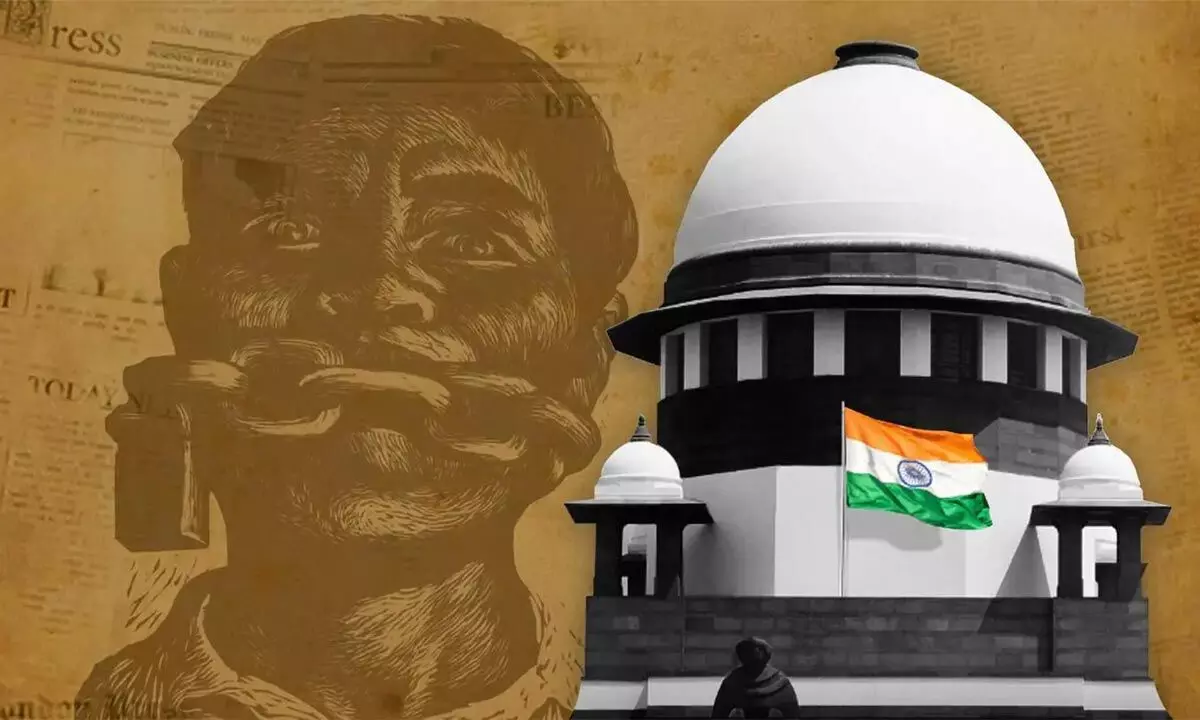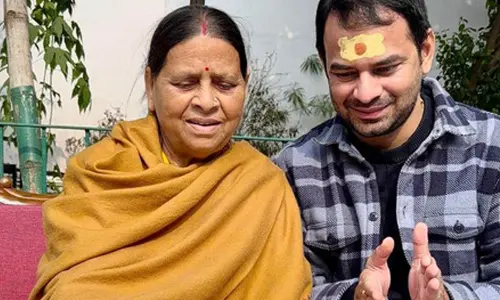Revisit sedition law, de-risk democracy

Revisit sedition law, de-risk democracy
In a significant development, the Central government told the Supreme Court on Monday that it has decided to re-examine and reconsider Section 124A of the Indian Penal Code (IPC) which criminalises the offence of Sedition [SG Vombatkere vs Union of India].
In a significant development, the Central government told the Supreme Court on Monday that it has decided to re-examine and reconsider Section 124A of the Indian Penal Code (IPC) which criminalises the offence of Sedition [SG Vombatkere vs Union of India]. The previous day, the government had defended the law and argued for its continuation. This is a great piece of news and if the government really does revisit it and make at least necessary changes to it, it would be a good thing for the country.
Freedom of expression and liberty are severely compromised by the law in its present archaic shape and it is dealing blow after blow to the cherished democratic values of the country. While questioning the colonial-era sedition law on July 15, Chief Justice N V Ramana, expressed his concern over its misuse. "The use of sedition is like giving a saw to the carpenter to cut a piece of wood and he uses it to cut the entire forest itself. Debate on the law is raging in the country as more and more governments and law and order agencies keep misusing it. Sedition as per Section 124.A of the IPC reads as, "whoever, by words, either spoken or written, or by signs, or by visible presentation, or otherwise, brings or attempts to bring into hatred or contempt, excites or attempts to excite disaffection towards, the government established by law in (India), shall be punished with (imprisonment for life), to which fine may be added, or with imprisonment which may extend to three years, to which fine may be added, or with fine".
This law was a convenient tool for the British during their colonial rule in India and leaders including Mahatma Gandhi and Bal Gangadhar Tilak faced the charges under the law in their fight for freedom from the British Rule. K M Munshi had argued that the sedition law was a threat to democracy in India long back. He went on to add, and rightly so, that "as a matter of fact the essence of democracy is criticism of government".
The present-day governments, be it the one at the Centre or in the States, do neither have the democratic streak in them nor do they even brook criticism however mild it may be. They are trigger-happy and do not hesitate to slap Sedition charges.
Journalists, intellectuals, civil society members, political party members, students, activists, writers, students and intellectuals, no one is being spared. Political rivalry is also leading to Sedition charges against the rivals as we have seen in UP, Karnataka, Kerala, West Bengal and Maharashtra in recent times. Even Jawaharlal Nehru was no exception and, in fact, he not only reimposed the law through the first amendment in 1951 but also strengthened it by adding two expressions – friendly relations with foreign state and public order – as ground for imposing 'reasonable restrictions' on free speech.
As per the Kedar Nath judgment in 1962, the law was supposed to be applied in rare instances but now-a-days every political opponent is a seditious fellow and, hence, punishable under the act. Another reprehensible development is to use it to perpetuate one's appeasement politics against someone. Hope the Centre does "revisit it" as declared.














